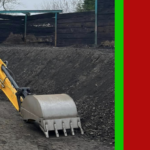Course Aim
By the end of this course learners will:
Know how to identify hazardous substances in their workplace.
Understand the ill health effects that hazardous substances cause.
Understand COSHH legal requirements.
Know how a COSHH risk assessment is carried out.
Understand what control measures will be put in place by employers to manage the risks posed by hazardous substances.
Know what employees should do to follow safety procedures.
Understand the importance of health surveillance for employees who work with certain hazardous substances.
Course Objectives
To ensure the health and wellbeing of yourself and those who may be present, you must understand where you may encounter asbestos. It is also important that you know what to do if you disturb asbestos. This is a possibility for many occupations, such as for construction workers or landlords.
Course Summary
Introduction to Hazardous Substances and COSHH
What is a substance hazardous to health?, who’s affected by hazardous substances at work?, what is COSHH and who has duties under it?, other duties under the COSHH regulations, the COSHH approved code of practice, where does COSHH apply?, other specific regulations for hazardous and dangerous substances, why is COSHH important?, common hazardous substances, where are hazardous substances used?, ill-health effects from hazardous substances, statistics on ill-health and hazardous substances, and benefits of COSHH.
Ill-Health Effects from Hazardous Substances at Work
The main health effects at work, routes of entry, respiratory illnesses, occupational cancer, skin problems and diseases, occupational dermatitis, occupational asthma, biological agents, toxic or asphyxiant substances, and effects of hazardous substances to health.
COSHH Requirements for Risk Assessment
Key definitions, legal requirements and risk assessments, what is a risk assessment?, risk assessments and COSHH, who should carry out a risk assessment?, identifying the hazards, determining who may be harmed and how, evaluating the risks and implementing controls, recording risk assessment findings, and reviewing and updating the assessment.
Control Measures for Hazardous Substances: Part 1
Substitution and changing the process, engineering controls, safe system of work, storage, transport, handling, and use, personal protective equipment (PPE), respiratory protective equipment (RPE), hazard warning labelling and packaging, and safety data sheets.
Control Measures for Hazardous Substances: Part 2
Maintenance, examinations, and testing, pre-use checks, requirements for PPE and RPE, monitoring exposure in the workplace and WELs, health surveillance, information, instruction, and training, and accidents, incidents, and emergencies.
Duration
You’ll be in the classroom for 1/2 days, and on these days you will be in a small group with fellow blended coursemates. The day will be led by a specialist trainer.1
Testing / Certification
On completion of the course learners receive an Certificate valid for 3 years, and meets HSE requirements.
Location
Croydon












